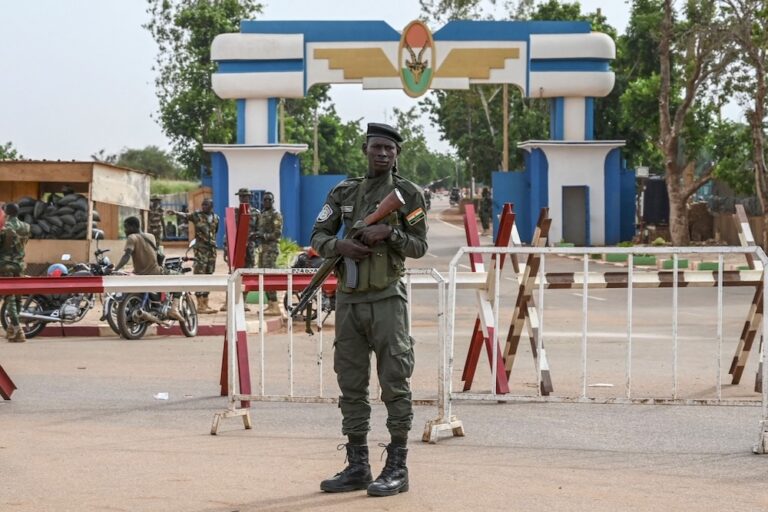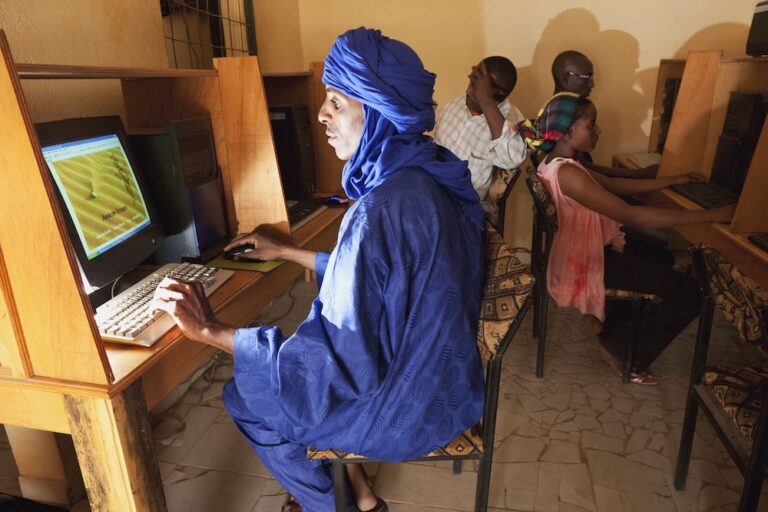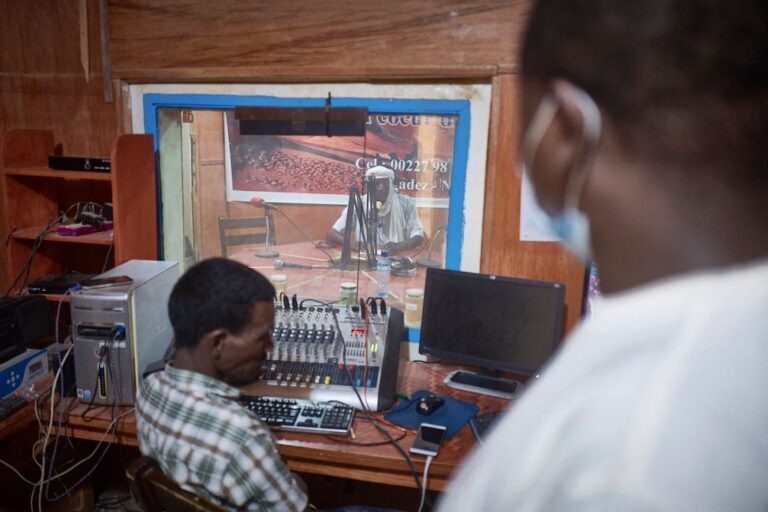RSF deplores the interrogation of eight newspaper publishers by Niamey police after publishing a document accusing the President's son of taking kickbacks.
(RSF/IFEX) – Reporters Without Borders deplores the interrogation of eight newspaper publishers by the Niamey police on 1 August 2009 at the behest of the president’s son for publishing a document accusing him and another person of taking kickbacks. After being questioned, two of the publishers were taken into custody in connection with another case and are due to appear before prosecutors on 5 August.
“Journalists should not have to explain themselves in a police station when they do their job properly,” Reporters Without Borders said. “The summonses received by these newspaper owners are shocking and come at a time when the space for free expression in Niger is being drastically reduced.”
Calling for the release of the two publishers who have been detained, the press freedom organisation added: “We salute the courage and tenacity of Niger’s journalists, who should be able to cover political developments and report on corruption cases without being arrested or intimidated.”
The publishers of Niger’s eight leading weeklies were summoned for questioning at Niamey police headquarters on 1 August after publishing a document signed by a notary indicating that an international company, Niger Uranium Venture SA, had paid President Mamadou Tandja’s son, Hadia Doulaye Tandja, and Ibrahim Hamidou, a journalist linked to the president’s family, 5 million dollars in kickbacks for permission to prospect for uranium in the north of the country.
The two detained publishers are Abdoulaye Tiémogo of “Le Canard Déchaîné” and Ali Soumana of “Le Courrier.” They face a libel prosecution over reports accusing the justice minister of overcharging for a study on slavery and forced labour in 2007, when he was head of the national human rights commission.
Meanwhile, the deputy director-general of the Dounia radio and television group, Ali Idrissa, was summoned for questioning by National Communication Council president Daouda Diallo for interviewing government opponents about an upcoming referendum on proposed changes to the Constitution that would allow President Tandja to stay in power until 2012 and seek re-election as many times as he likes.
“Our job is to inform the public and this is what we will do, whatever the cost,” Idrissa told Reporters Without Borders. “We will not yield to threats or blackmail.”
As it stands, the Constitution would require President Tandja to stand down when he completes his second term in December.
The eight publishers targeted by the complaint brought by the president’s son are:
– Moussa Aksar, “L’Evénement”
– Zakari Alzouma, “Opinions”
– Abard Mouddour Zakara, “L’Actualité”
– Omar Keita Lalo, “Le Républicain”
– Ibrahim Souley, “L’Enquêteur”
– Assane Sadou, “Le Démocrate”
– Abdoulaye Tiémogo, “Le Canard Déchaîné”
– Ali Soumana, “Le Courrier”


